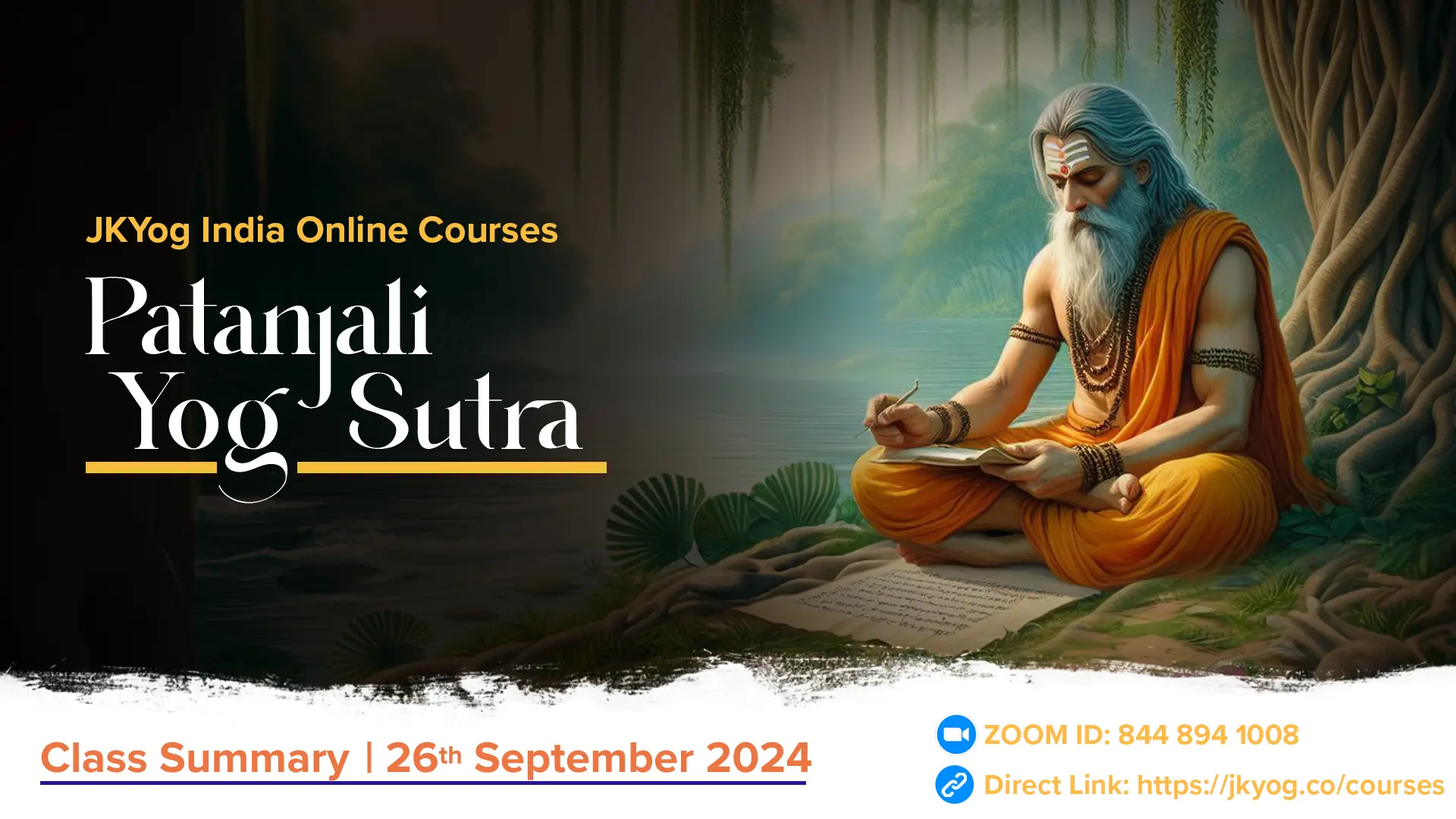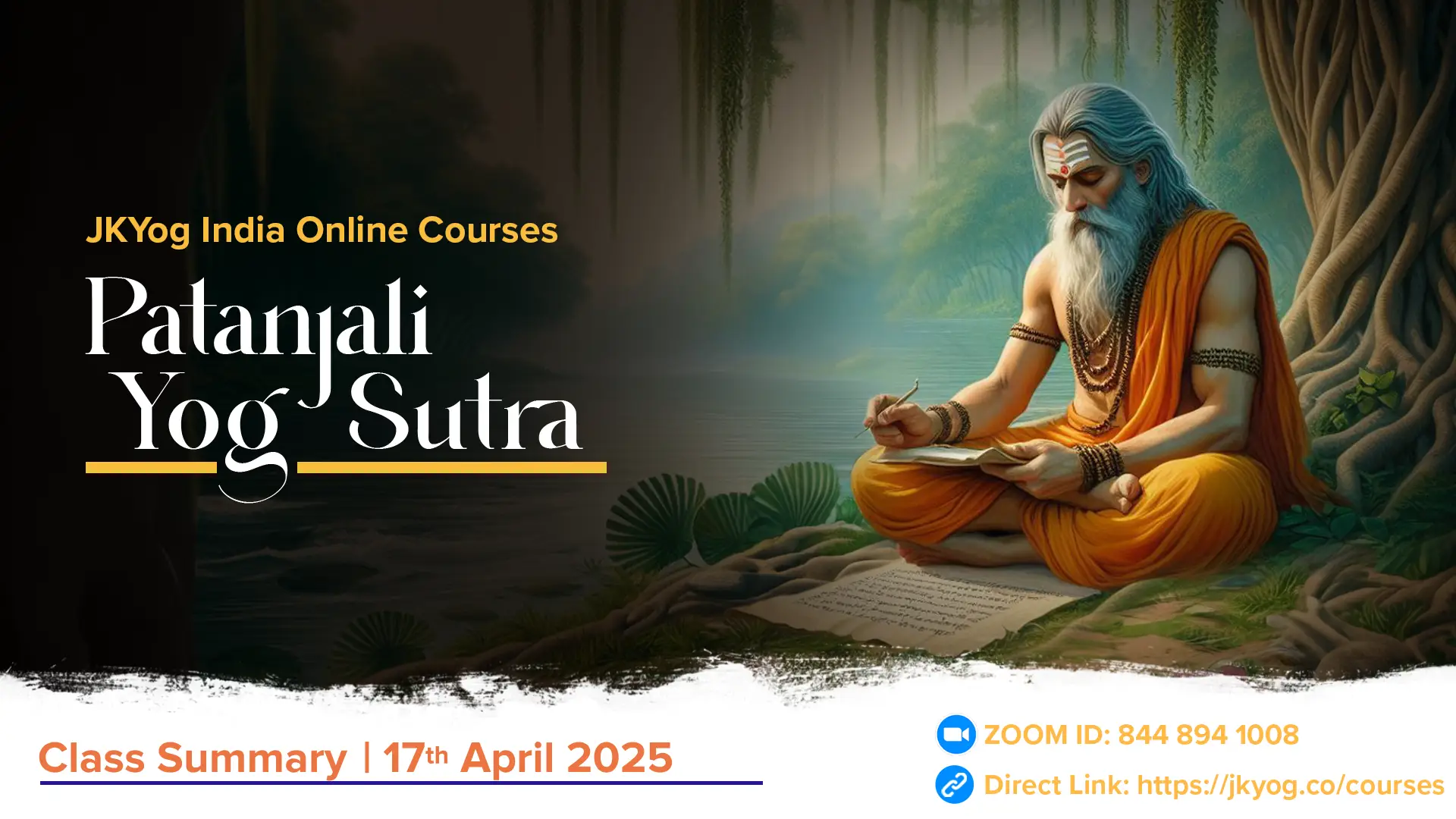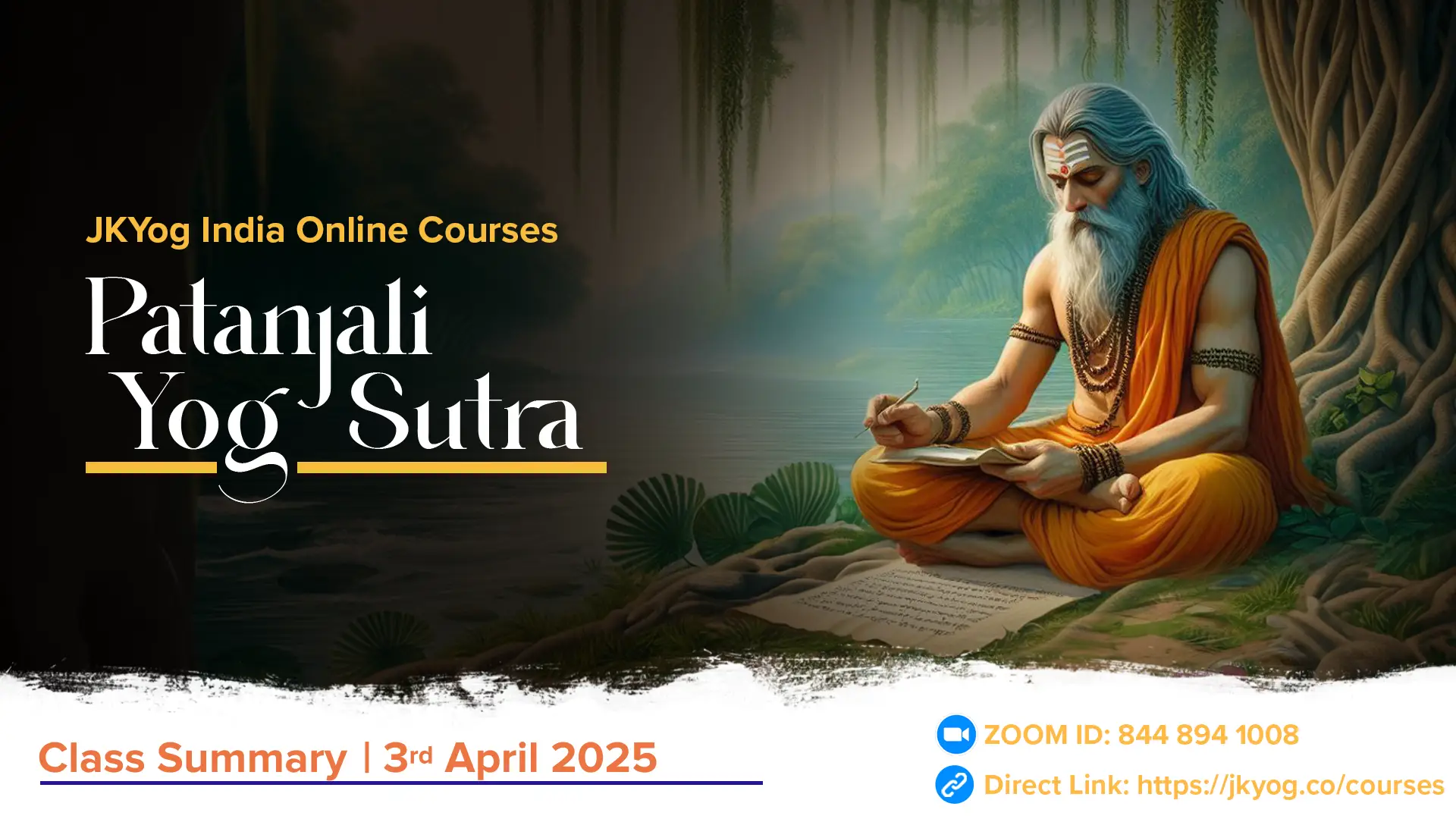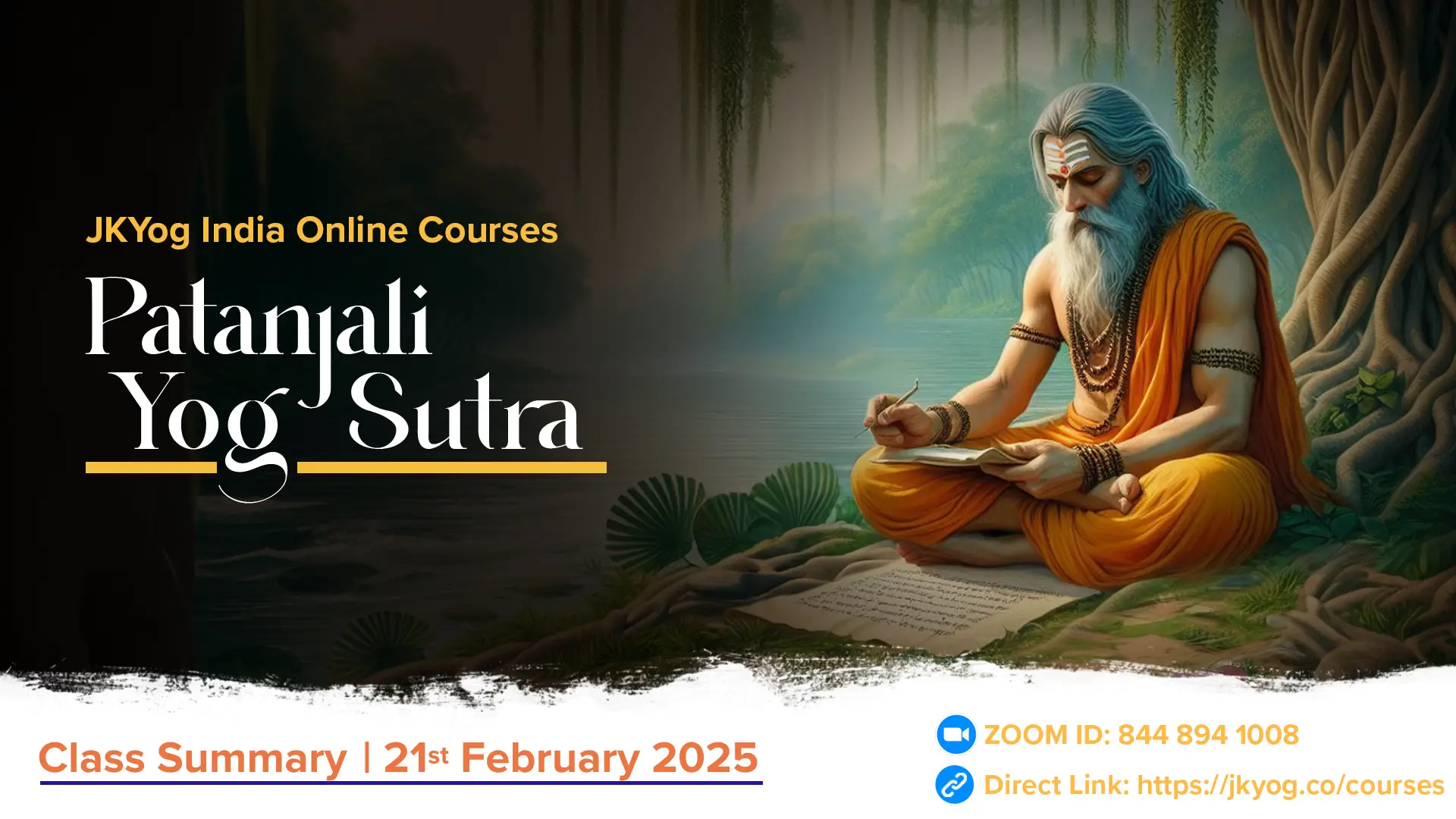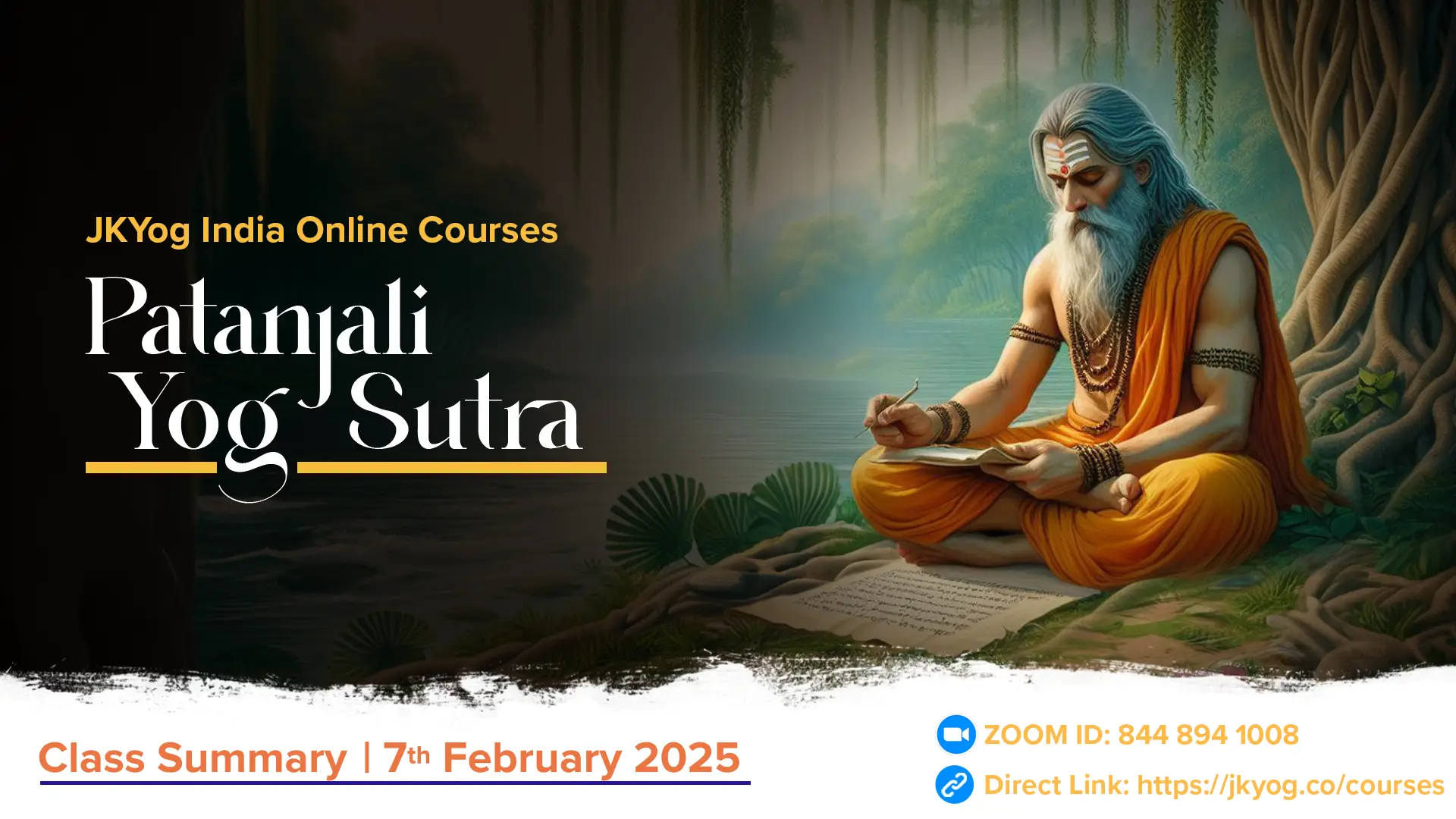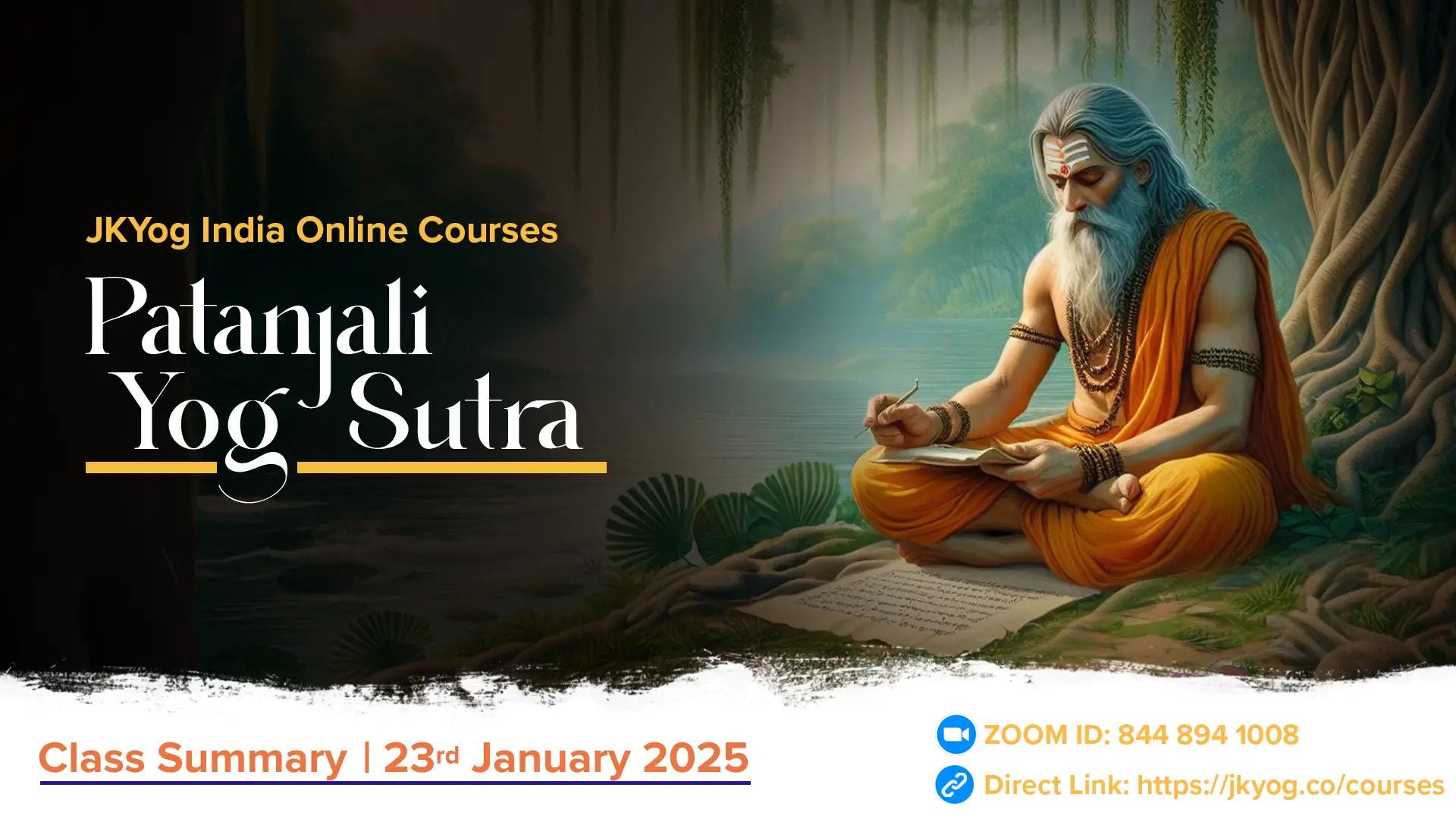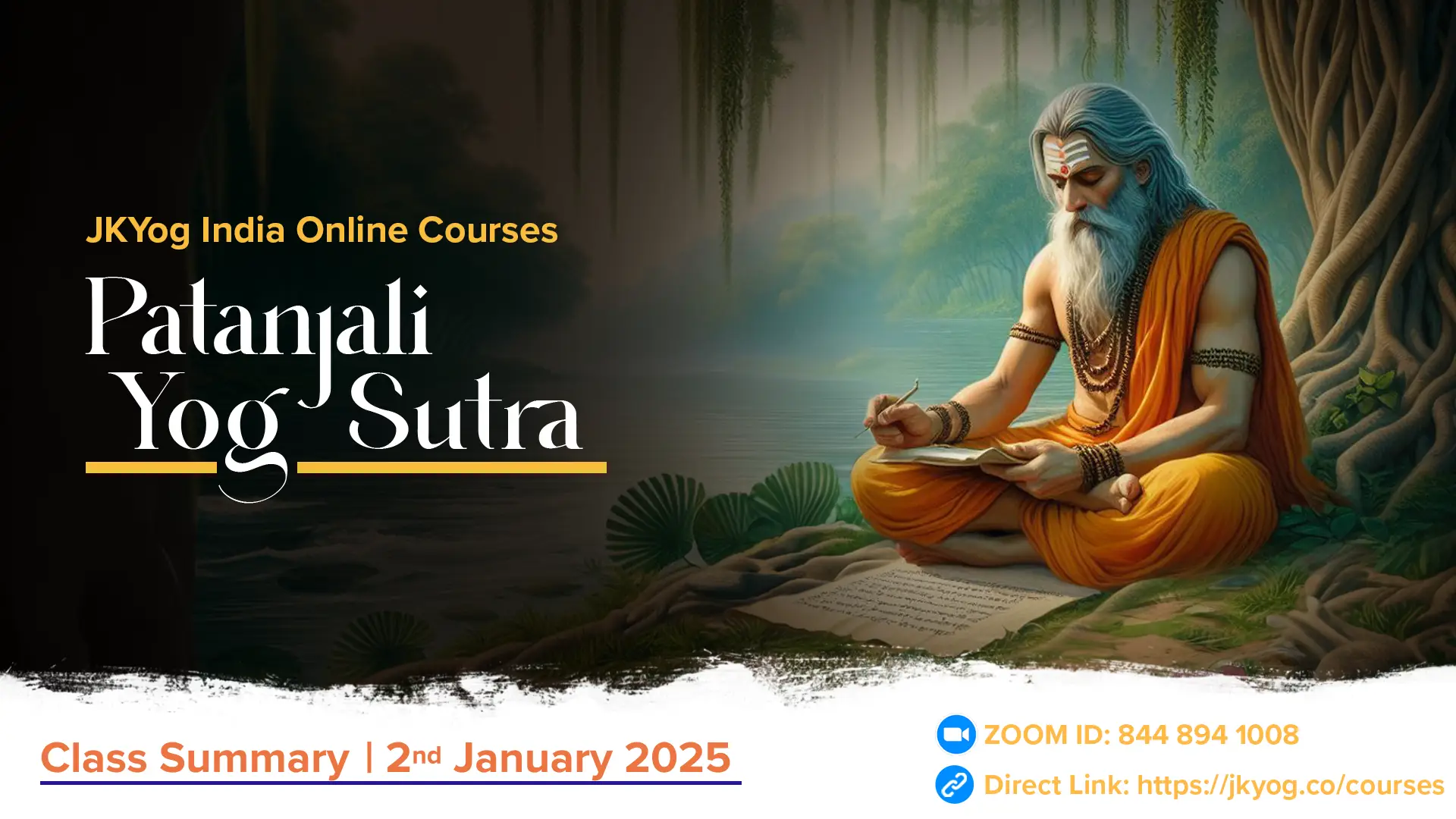बाह्याभ्यन्तरविषयाक्षेपी चतुर्थः || 2.51 ||
Bāhyābhyantara viṣayākṣepī caturthaḥ || 2.51 ||
Translation: The fourth kind of prāṇāyāma is that which is caused by concentration surpassing external or internal objects.
We discussed the three types of prāṇāyāma in the previous chapter. Here we deal with the fourth one which is beyond inhalation, exhalation, and the space between— transcending breath to the most subtle life force. The practitioner is absorbed by prāṇa itself. In the fourth stage, there takes place, the natural cessation of breath that often accompanies intense concentration. In Sanskrit, it is called kevala kumbhaka.
Kevala Kumbhaka
We read in the Purāṇas that an anthill could grow over the sages engaged in deep meditative penance. The reason was that as the sages controlled all kinds of breathing, their body became like logs of wood after reaching kevala kumbhaka and so anthills grew over their body. Sage Vālmīki was one such personality. He was so called since came out of the valmīka or anthill after several years of meditative penance. The first three prāṇāyāmas, control of inhalation, exhalation, or holding the breath, are intentional. But this fourth subconscious and unintended restraint of the breath gives us insight into the overall power and practice of yoga.
ānandamaya kośa - kevala kumbhaka.
Now, Yoga is a spiritual science. Its aim is to attain self-wisdom, going deep into the soul force transcending the body-mind complex. According to the Taittirīya Upaniṣad, human life consists of five layers or sheaths. Each one is subtler than the previous one. At the outset is the annamaya kośa or the physical body. If you transcend it, you come to prāṇamaya kośa. Further you transcend manomaya kośa and the vijñānamaya kośa. The last one is the ānandamaya kośa, the sheath of pure joy. Our aim is to attain that state, transcending all other states. What is presented in the present sūtra is the second stage—transcending the vital breaths – kevala kumbhaka. We can control our breath for a few seconds only. But Yogins can control it for extraordinary periods of time and even enter into a state of breath suspension. How was it possible? The simple answer is practice, wherein the great yogin sages could transcend the first three stages of prāṇa and spontaneously attain the fourth stage.
Gross breath – subtle mind
We have all experienced breath-taking moments when we are absorbed in something very dear to us and we notice how shallow or even suspended the breath becomes. Such a concentration on objects, incidents, images, or ideas can be external or internal but under all such circumstances, the breath control takes place unintentionally. Thus, we come to understand there is some connection between the mind and the breathing process. If the mind can stop the breath, then it stands to reason that the breath may also have the power to stop the mind. Which is easier? The gross breath may more easily influence the subtle mind.
When the breath is controlled, the mind begins to naturally settle.
So, in our practice, we begin simply. We first learn to control the body and having accomplished this with some success, we focus on the control of the breath. When the breath is controlled, the mind begins to naturally settle, opening the doorway to the control or expression of true wisdom. Finally, though subtle and elusive, we may peel back the final layer and discover our own joy in the ānandamaya kosha. But before any of this occurs, we must work towards concentration. We must throw ourselves fully into practice. This is the significance of the present sutra.2.51
The general benefits of prāṇāyāma and yoga
- Enhancing the power of meditation and mantra
- Increases one’s healing power
- Keeps allergies and viruses at bay
- Encourages self-care
- Supports your connective tissue
- Uses the placebo effect to affect change
"Breath is the bridge which connects life to consciousness, which unites your body to your thoughts."
- Thich Nhat Hanh
Having understood the importance of Pranayama let us try to practise it regularly.
Summary: JKYog India Online Class- Patanjali Yog Sutra [English]- 26.09.2024

